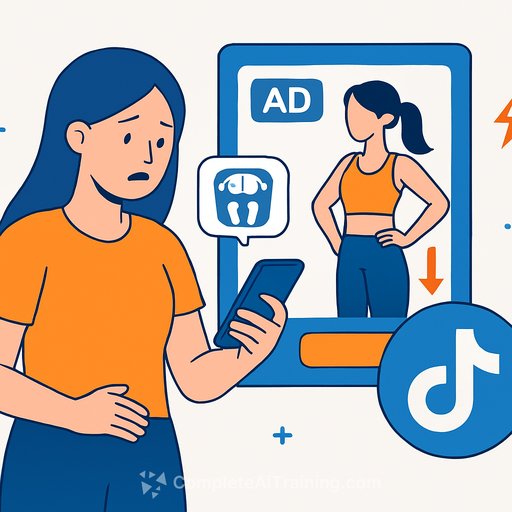Top 10 AI Tools Every Marketing Professional in Cincinnati Should Know in 2025
Too Long; Didn't Read:
Cincinnati marketers need to adopt AI for personalization, automation, and real-time offers in 2025. Pilots can reduce content personalization time by about 50× and deliver lifts similar to Dynamic Yield—around +14% email click-through rates and roughly 16% of revenue from recommendations. Ensuring SOC2/ISO compliance and conducting bias and accessibility checks are essential.
Consumers expect relevance and speed. Research shows 71% of customers want personalized interactions, and generative AI can accelerate content personalization dramatically. Microsoft reports 66% of CEOs see measurable business benefits from AI, making it clear that Cincinnati marketing teams must transition from manual campaigns to AI-enabled approaches. Since many shoppers still visit physical stores, blending in-store signals with digital AI models will boost conversions and reduce campaign build time.
Start with auditing your data, piloting targeted offers, and training your team. Programs like AI Essentials for Work bootcamp provide practical skills to build measurable marketing capability quickly.
Program Details
- Program: AI Essentials for Work
- Length: 15 Weeks
- Courses included: AI at Work: Foundations; Writing AI Prompts; Job-Based Practical AI Skills
- Cost (early bird): $3,582
- Registration: Register for the AI Essentials for Work bootcamp
Methodology: How We Picked These Top 10 AI Tools
The selection focused on five practical criteria relevant for Cincinnati marketers: compliance and data residency (SOC 2, ISO, FedRAMP readiness), seamless integration with local martech stacks, scalability and latency under enterprise load (targeting sub-300ms response times), transparent cost models, and governance/support for multi-team workflows.
Each tool was vetted for on-prem or private-cloud options, API/webhook depth, and clear service-level agreements. We aimed for tools that support pilots via API first, with options to fine-tune or self-host if needed—keeping pilots affordable and privacy-compliant.
ChatGPT (OpenAI): Conversational LLM and Copy Assistant
ChatGPT can serve as your go-to copy engine. Build a Custom GPT to maintain your brand voice, generate and A/B-test ad copy, social posts, and email subject lines. Connect it to platforms like Mailchimp to automate draft campaigns. This is ideal for small retail or agency teams in Ohio looking to run multivariate tests without heavy agency costs.
Enterprise features allow uploading files and analyzing data—drop in local sales CSVs or creative assets to generate on-brand social or ad creatives that highlight Cincinnati landmarks.
DeepSeek (DeepSeek AI): Open-Source LLM for Low-Cost Creative and Coding
DeepSeek R1 offers an affordable option for creative copy and coding assistance at scale. Its open-source mixture-of-experts model supports a 128K token context window, perfect for long campaign briefs and product catalogs. Distilled checkpoints can run locally, reducing inference costs.
Available via Azure AI Foundry for enterprise deployment with compliance tooling or downloadable from Hugging Face for on-prem or hybrid use.
DALL·E 3 (OpenAI): Image Generation for Social and Ad Creatives
DALL·E 3 excels at nuanced image generation, integrating with ChatGPT for iterative prompt refinement. It quickly produces multiple stylistic variations, making it perfect for creating localized visuals referencing Cincinnati landmarks or seasonal events.
Sora (OpenAI): Video Generation for Promos and Social Reels
Sora helps prototype short promotional videos and social reels by turning prompt-driven scripts and brand assets into editable video drafts. This shortens the design handoff cycle and keeps creative control local.
Personalization Engines (Example: Dynamic Yield): Onsite Recommendations and Email Personalization
Personalization platforms like Dynamic Yield enable Cincinnati marketers to blend web visits, in-store signals, and CRM data into revenue-driving experiences. Examples include homepage recommendations tuned to local inventory, emails that refresh content on open, and multi-touch campaigns that nudge cart recovery.
Looker / Google Cloud AI: Data Analytics & Audience Segmentation
Looker and Looker Studio make it easier to transform raw web, CRM, and in-store data into shareable dashboards and actionable audience segments. Powered by BigQuery, these tools unlock insights for better targeting.
Zapier / Make: Automation & Workflow Tools for Marketing Operations
Zapier and Make serve as practical workflow automation tools, enabling Cincinnati marketing teams to scale campaigns without adding headcount. Zapier supports over 7,000 apps and leverages LLMs to auto-generate automation templates.
GitHub Copilot: Code & Technical Automation Assistant
For teams managing in-house web experiments, local e-commerce sites, or campaign automation, GitHub Copilot converts plain English prompts into scripts, unit tests, and automation code—cutting technical overhead.
Perplexity / Research Agents (Perplexity AI): Competitive Research and Trend Summaries
Perplexity AI provides quick, evidence-backed competitive intelligence and trend summaries, helping Cincinnati marketers stay informed without lengthy manual research.
Humane Intelligence / Responsible AI Tools: Bias Testing and Governance
Responsible AI is essential. Implement governance frameworks, perform regular algorithm audits, and run accessibility checks to avoid bias and ensure compliance.
IBM Watson / IBM Hybrid-Cloud AI: Enterprise-Scale Deployment and Hybrid-Cloud Options
For organizations needing enterprise-grade AI with data control, IBM Watson combined with IBM’s hybrid-cloud infrastructure offers a practical route from pilot to production.
Conclusion: Building a Practical AI Playbook for Cincinnati Marketing Teams
Cincinnati marketing teams can turn AI momentum into measurable results by running fast pilots, applying clear governance, and investing in targeted training programs.
Frequently Asked Questions
- Which AI tools should Cincinnati marketing professionals prioritize in 2025?
Focus on tools for copy and chat (ChatGPT), open-source LLMs for local deployment (DeepSeek), image and video generation (DALL·E 3, Sora), personalization engines (Dynamic Yield), analytics (Looker/BigQuery), automation (Zapier/Make), coding assistants (GitHub Copilot), research agents (Perplexity), responsible AI tools, and enterprise hybrid-cloud platforms (IBM Watson). - How should Cincinnati teams evaluate and pick the right AI tool for local marketing needs?
Use five criteria: (1) compliance and data residency, (2) integration with existing martech, (3) scalability and performance, (4) transparent cost models, and (5) governance and support. - What practical pilot should a Cincinnati marketing team run first to show measurable results?
Run a 90-day pilot connecting GA4 → BigQuery → Looker Studio → a personalization engine (e.g., Dynamic Yield). - What risks and governance steps should local marketers consider when using AI tools?
Treat responsible AI as a priority: assign an executive owner, keep a model inventory, and conduct regular algorithm audits. - How should Cincinnati teams balance cost, speed, and data control when choosing between cloud, hybrid, or on-prem AI deployments?
Start with API-based pilots for speed and lower upfront costs, then consider fine-tuning or self-hosting if justified.
Your membership also unlocks:






